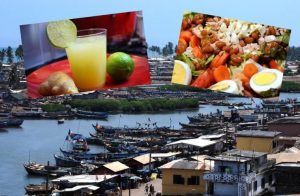“Whatever house you enter, stay there” (Read: Mark 6: 10-13)
When you meet a person on a journey, you know that he/she comes from home or is going home; otherwise, you immediately see that he/she is a fugitive who has severed his/her relationships, or a vagrant who has nowhere to stay.
Human beings can live only where they love and are loved. Elsewhere, they are not in place, they are out of place, suffering like dislodged bones. As a place of intimacy, the house is visible where there is communion, acceptance and mutual service. Otherwise, it is hell – a lethal trap for those who live in it.
If the human being “is” his relationships, the home is the first place to evangelize and to be evangelized, the first place where everybody lives and witnesses to the Gospel.
The city itself (Cf. Luke 10:8) can be like an enlarged home, where there are relationships of solidarity (the human being is a political animal!). Otherwise, it is a fighting pit where one grapples with the other.
If one wants to enter another’s home, he/she may be rejected. And rightly so! If he/she enters with wealth, he/she is accepted in order to be robbed of it. If he/she enters penniless, he/she can be either welcomed with love or rejected.
The messenger, who has deprived himself of everything for the love of the brethren, because of His very presence, puts them in the condition of accepting a poor brother or sister. Whoever does this is evangelized. He truly becomes like God who accepts everybody. What we possess is always something more that weighs down and hinders our mission.
The efficacy of mission depends not on what we have (both in material or cultural goods), but on what we miss.
Our wants and limits show the need we have for others and challenge others so as to accept us. What all people need in order to live is to be accepted with their limitations. The mission is fulfilled in the fact that the others, by accepting me as a brother, become sons and daughters. And I myself become like the Son who made Himself poor in order to be accepted and makes me like Him who accepts all.
If the messenger is not accepted, the mission doesn’t fail. The Lord Jesus, when rejected, made of His rejection the supreme testimony of acceptance: on the Cross, He witnessed absolute love, giving His life on behalf of those who were taking it.
The wound of rejection falls always on the one who loves, giving occasion for an extreme witness. Before entering the Holy Land, one used to do the gesture of shaking the pagan dust from the feet. In doing this, the apostles show how those who do not welcome their brethren harm themselves: they are shut out from the Father’s house, they do not enter the promised kingdom. As for the messenger, he always witnesses the Father’s love, both when he is accepted and when he is rejected.
The word of the missionaries is simple: they proclaim conversion to what they witness with their life. It is the conversion from possession to gift, from wealth to poverty, from dominion to service, from the closure of egoism to the opening of love, from a dead existence, alien to the Father and to the neighbour, to a life as children and brothers and sisters.
Their presence chases away many devils: it is victory over the evils that divide human beings from their true life, it is the love for the Father and the brethren.
This is soothing oil to the wounds and support for the weakness of those who fall under the unbearable weight of their loneliness. This is our true cure: it gives us back our dignity as children of God through the love towards our brothers and sisters. (S.F.)






